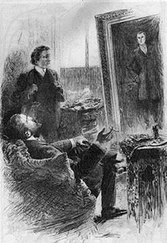E. E. Smith - Gray Lensman
Здесь есть возможность читать онлайн «E. E. Smith - Gray Lensman» — ознакомительный отрывок электронной книги совершенно бесплатно, а после прочтения отрывка купить полную версию. В некоторых случаях можно слушать аудио, скачать через торрент в формате fb2 и присутствует краткое содержание. Жанр: unrecognised, на английском языке. Описание произведения, (предисловие) а так же отзывы посетителей доступны на портале библиотеки ЛибКат.
- Название:Gray Lensman
- Автор:
- Жанр:
- Год:неизвестен
- ISBN:нет данных
- Рейтинг книги:4 / 5. Голосов: 1
-
Избранное:Добавить в избранное
- Отзывы:
-
Ваша оценка:
- 80
- 1
- 2
- 3
- 4
- 5
Gray Lensman: краткое содержание, описание и аннотация
Предлагаем к чтению аннотацию, описание, краткое содержание или предисловие (зависит от того, что написал сам автор книги «Gray Lensman»). Если вы не нашли необходимую информацию о книге — напишите в комментариях, мы постараемся отыскать её.
Gray Lensman — читать онлайн ознакомительный отрывок
Ниже представлен текст книги, разбитый по страницам. Система сохранения места последней прочитанной страницы, позволяет с удобством читать онлайн бесплатно книгу «Gray Lensman», без необходимости каждый раз заново искать на чём Вы остановились. Поставьте закладку, и сможете в любой момент перейти на страницу, на которой закончили чтение.
Интервал:
Закладка:
GRAY LENSMAN
E.E. Smith
JOVIAN PRESS
Thank you for reading. If you enjoy this book, please leave a review.
All rights reserved. Aside from brief quotations for media coverage and reviews, no part of this book may be reproduced or distributed in any form without the author’s permission. Thank you for supporting authors and a diverse, creative culture by purchasing this book and complying with copyright laws.
Copyright © 2016 by E.E. Smith
Published by Jovian Press
Interior design by Pronoun
Distribution by Pronoun
ISBN: 9781537800332
FOREWORD
~
TWO THOUSAND MILLION OR SO years ago, at the time of the Coalescence, when the First and Second Galaxies were passing through each other and when myriads of planets were coming into existence where only a handful had existed before, two races of beings were already old; so old that each had behind it many millions of years of recorded history. Both were so old that each had perforce become independent of the chance formation of planets upon which to live. Each had, in its own way, gained a measure of control over its environment; the Arisians by power of mind alone, the Eddorians by employing both mind and mechanism.
The Arisians were indigenous to this, our normal space-time continuum; they had lived in it since the unthinkably remote time of their origin; and the original Arisia was very Earth-like in mass, composition, size, atmosphere, and climate. Thus all normal space was permeated by Arisian life-spores, and thus upon all Earth-like or Tellurian planets there came into being races of creatures more or less resembling Arisians in the days of their racial youth. None except Tellurians are Homo Sapiens, of course; few can actually be placed in Genus Homo; but many millions of planets are peopled by races distantly recognizable or belonging to the great class of MAN.
The Eddorians, on the other hand, were interlopers—intruders. They were not native to our normal space-time system, but came to it from some other, some alien and horribly different other, plenum. For eons, in fact, they had been exploring the macrocosmic All; moving their planets from continuum to continuum; seeking that which at last they found—a space and a time in which there were enough planets, soon to be inhabited by intelligent life, to sate even the Eddorian lust for dominance. Here, in our own space-time, they would stay; and here supreme they would rule.
The Elders of Arisia, however, the ablest thinkers of the race, had known and had studied the Eddorians for many cycles of time. Their integrated Visualization of the Cosmic All showed what was to happen. No more than the Arisians themselves could the Eddorians be slain by any physical means, however applied; nor could the Arisians, unaided, kill all of the invaders by mental force. Eddore’s All-Highest and his Innermost Circle, in their ultra-shielded citadel, could be destroyed only by a mental bolt of such nature and magnitude that its generator, which was to become known throughout two galaxies as the Galactic Patrol, would require several long Arisian lifetimes for its building.
Nor would that building be easy. The Eddorians must be kept in ignorance, both of Arisia and of the proposed generator, until too late to take effective counter-measures. Also, no entity below the third level of intelligence, even—or especially?—of the Patrol, could ever learn the truth; for that knowledge would set up an inferiority complex and thus rob the generator of all ability to do the work for which it was designed.
Nevertheless the Arisians began building. On the four most promising planets of the First Galaxy—our Earth or Sol Three, Velantia, Rigel Four, and Palain Seven—breeding programs, aiming toward the highest mentality of which each race was capable, were begun as soon as intelligent life developed.
On our Earth there were only two blood lines, since humanity has only two sexes. One was a straight male line of descent, and was always named Kinnison or its equivalent. Civilizations rose and fell; Arisia surreptitiously and unobtrusively lifting them up, Eddore callously knocking them down as soon as it became evident that they were not what Eddore wanted. Pestilences raged, and wars, and famines, and holocausts and disasters that decimated entire populations again and again, but the direct male line of descent of the Kinnisons was never broken.
The other line, sometimes male and sometimes female, which was to culminate in the female penultimate of the Arisian program, was equally persistent and was characterized throughout its prodigious length by a peculiarly spectacular shade of red-bronze-auburn hair and equally striking gold-flecked, tawny eyes. Atlantis fell, but the red-headed, yellow-eyed child of Captain Phryges had been sent to North Maya, and lived. Patroclus, the red-headed gladiator, begot a red-headed daughter before he was cut down. And so it went.
World Wars One, Two, and Three, occupying as they did only a few moments of Arisian-Eddorian time, formed merely one incident in the eons-long game. That incident was important, however, because immediately after it Gharlane of Eddore made what proved to be an error. Knowing nothing of the Arisians, or of what they had done to raise the level of intelligence of mankind, he assumed that the then completely ruined Earth would not require his personal attention again for many hundreds of Tellurian years, and went elsewhere: to Rigel Four, to Palain Seven, and to Velantia Two, or Delgon, where he found that his creatures, the Overlords, were not progressing satisfactorily. He spent quite a little time there; time during which the men of Earth, aided almost openly by the Arisians, made a phenomenally rapid recovery from the ravages of atomic warfare and fantastically rapid advances in both sociology and technology.
Virgil Samms, the auburn-haired, tawny-eyed Crusader who was to become the first wearer of Arisia’s Lens, took advantage of the general demoralization to institute a really effective planetary police force. Then, with the advent of inter-planetary flight, he was instrumental in forming the Interplanetary League. As head of the Triplanetary Service, he took a leading part in the brief war with the Nevians, a race of highly intelligent amphibians who used allotropic iron as a source of atomic power.
Gharlane of Eddore came back to the Solarian System as Gray Roger, the enigmatic and practically immortal scourge of space, only to find his every move blocked—blocked so savagely and so completely that he could not even kill two ordinary human beings, Conway Costigan and Clio Marsden. Nor were these two, in spite of some belief to the contrary, anything but what they seemed. Neither of them ever knew that they were being protected; but Gharlane’s blocker was in fact an Arisian fusion—the four-ply mentality which was to become known to every Lensman of the Galactic Patrol as Mentor of Arisia.
The inertialess drive, which made an interstellar trip a matter of minutes instead of lifetimes, brought with it such an increase in crime, and made detection of criminals so difficult, that law enforcement broke down almost completely. As Samms himself expressed it:
“How can legal processes work efficiently—work at all, for that matter—when a man can commit a murder or a pirate can loot a space-ship and be a hundred parsecs away before the crime is even discovered? How can a Tellurian John Law find a criminal on a strange world that knows nothing whatever of our Patrol, with a completely alien language—maybe no language at all—when it takes months even to find out who and where—if any—the native police officers are?” Also, there was the apparently insuperable difficulty of the identification of authorized personnel. Triplanetary’s best scientists had done their best in the way of a non-counterfeitable badge—the historic Golden Meteor, which upon touch impressed upon the toucher’s consciousness an unpronounceable, unspellable symbol—but that best was not enough. What physical science could devise and synthesize, physical science could analyze and duplicate; and that analysis and duplication had caused trouble indeed.
Читать дальшеИнтервал:
Закладка:
Похожие книги на «Gray Lensman»
Представляем Вашему вниманию похожие книги на «Gray Lensman» списком для выбора. Мы отобрали схожую по названию и смыслу литературу в надежде предоставить читателям больше вариантов отыскать новые, интересные, ещё непрочитанные произведения.
Обсуждение, отзывы о книге «Gray Lensman» и просто собственные мнения читателей. Оставьте ваши комментарии, напишите, что Вы думаете о произведении, его смысле или главных героях. Укажите что конкретно понравилось, а что нет, и почему Вы так считаете.












